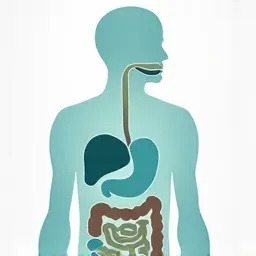Beyond Traditional IBS Treatment: How New Research on Gut Microorganisms is Revolutionizing Digestive Health Care

For years, millions of people with digestive issues have been told they have "just IBS" and given generic treatments that barely scratch the surface. But exciting new research is revealing that what we've been calling IBS might actually be several distinct conditions—each requiring its own targeted approach.
Recent breakthroughs in gut microorganism research are fundamentally changing how we understand and treat digestive disorders. From Intestinal Methanogen Overgrowth (IMO) to advanced SIBO treatments, the era of precision gut health medicine has arrived.
The IMO Breakthrough: When Constipation Has a Microbial Cause
One of the most significant developments comes from groundbreaking research at Cedars-Sinai that identified a previously overlooked player in digestive health: archaea. Unlike bacteria, these ancient microorganisms produce methane gas, and when they overgrow in the small intestine, they create a condition called IMO.
The research reveals that patients with IMO are significantly more likely to experience severe constipation compared to those with traditional SIBO. This discovery explains why many people with constipation-predominant IBS haven't responded well to conventional treatments—they've been treating the wrong microorganisms.
How IMO Differs from SIBO
While SIBO (Small Intestinal Bacterial Overgrowth) involves an overgrowth of bacteria producing hydrogen gas, IMO specifically involves archaea producing methane. This distinction matters because:
- Different symptoms: IMO typically causes severe constipation, while SIBO often causes diarrhea or mixed symptoms
- Different testing: Both can be detected through breath testing, but require different interpretation
- Different treatment: IMO requires specific approaches to suppress archaea overgrowth
Revolutionary SIBO Treatment Advances
Meanwhile, recent SIBO research published in Current Infectious Disease Reports has unveiled several game-changing developments:
Molecular Testing Precision
New molecular testing techniques have identified Enterobacteriaceae as the primary bacterial alteration in SIBO patients. This precision allows healthcare providers to target specific bacterial families rather than using broad-spectrum approaches.
Elemental Diet Success
Perhaps most exciting is the emergence of elemental diets as an alternative to antibiotic therapy. Some studies report 100% cure rates with properly implemented elemental diet protocols. These pre-digested nutritional formulas essentially "starve" the overgrown bacteria while providing complete nutrition.
Advanced Breath Testing
Improved breath testing protocols are dramatically increasing diagnostic accuracy. Healthcare providers can now identify specific gas-producing pathways and tailor treatments accordingly.
The Shift from Symptom Management to Precision Medicine
These advances represent a fundamental shift in digestive health care. Instead of managing symptoms with generic approaches, we're moving toward precision medicine that targets the root microbial causes.
According to updated IBS management guidelines, the Rome IV criteria now emphasize positive diagnosis rather than exclusion. This means healthcare providers are looking for specific patterns and causes rather than simply ruling out other conditions.
Practical Steps for Diagnosis and Treatment
If you suspect you might have IMO or SIBO, here's what the latest research suggests:
Getting Proper Testing
- Breath testing: Request both hydrogen and methane breath testing
- Symptom tracking: Document patterns of constipation, bloating, and other digestive symptoms
- Medical history review: Discuss previous antibiotic use, digestive surgeries, or other risk factors
Treatment Approaches
Based on current research, effective treatment typically involves:
- Targeted antimicrobials: Specific to whether you have bacterial overgrowth (SIBO) or archaeal overgrowth (IMO)
- Dietary modifications: Low-FODMAP diets remain the most evidence-based dietary intervention
- Prokinetic support: Agents that improve gut motility show promise for preventing recurrence
- Microbiome restoration: Strategic use of prebiotics and probiotics after treatment
Supporting Your Gut Microbiome Long-Term
While targeted treatments address overgrowth conditions, maintaining a healthy gut microbiome requires ongoing attention:
- Diverse plant fiber intake: Essential for microbiome variety and short-chain fatty acid production
- Regular motility: Important for healthy microbial turnover and preventing stagnation
- Stress management: The gut-brain axis significantly impacts digestive health
- Avoiding unnecessary antibiotics: Protect your microbiome when possible
The Future of Digestive Health Care
These research advances signal a new era in digestive health care. We're moving away from the frustrating "trial and error" approach toward precise, targeted treatments based on understanding the specific microorganisms involved.
The implications extend beyond just SIBO and IMO. As we better understand how the gut microbiome affects the nervous, immune, and endocrine systems, we're likely to see even more personalized approaches to digestive health.
Key Takeaways
- IMO (methane-producing archaea overgrowth) is a distinct condition from SIBO that primarily causes severe constipation
- New molecular testing and elemental diet protocols are revolutionizing SIBO treatment
- Precision medicine approaches are replacing generic symptom management
- Proper breath testing can identify specific microbial overgrowth patterns
- Long-term gut health requires supporting microbiome diversity and motility
If you've been struggling with digestive symptoms that haven't responded to traditional IBS treatments, these new research findings offer hope. The key is working with a healthcare provider who understands these latest developments and can guide you toward the most appropriate testing and treatment approaches.
This content is for educational purposes only. Always consult with a healthcare professional for medical advice.



